Is Zheng Qinwen’s comeback just a facade for the fans? Netizens suspect her return was a last-minute decision and that she was forced to compete!
After 88 days, China’s leading player Zheng Qinwen returned! After winning her first match, she frankly said she hadn’t planned to join the China Open, but due to fans’ strong desire to watch her play, she decided to come back even though her right elbow still had minor pain following surgery.

However, many fans questioned her remarks. “I don’t think her comeback is that simple. It’s hard not to consider the pressure from her ranking, sponsors’ expectations, and the nation’s demands. All these factors might have pushed her to return prematurely!” a netizen commented.
Fans have reasons for such suspicions. Firstly, Zheng Qinwen did not “actively register” for the China Open like she did for the Ningbo and Wuhan tournaments; instead, she entered automatically based on her ranking. Moreover, before her debut, she never released a video confirming her participation and appeared to be uncertain about competing, which leads to speculation: was her return at this event truly voluntary?
Additional evidence supports this view. According to insiders, from the time she underwent right elbow arthroscopy in July to the China Open, Zheng had only recovered about 80%. Her serve speed dropped to 175 km/h (compared to a peak of 200 km/h), and her stroke speed was 15% to 20% slower than at her best, indicating she was far from fully healthy.
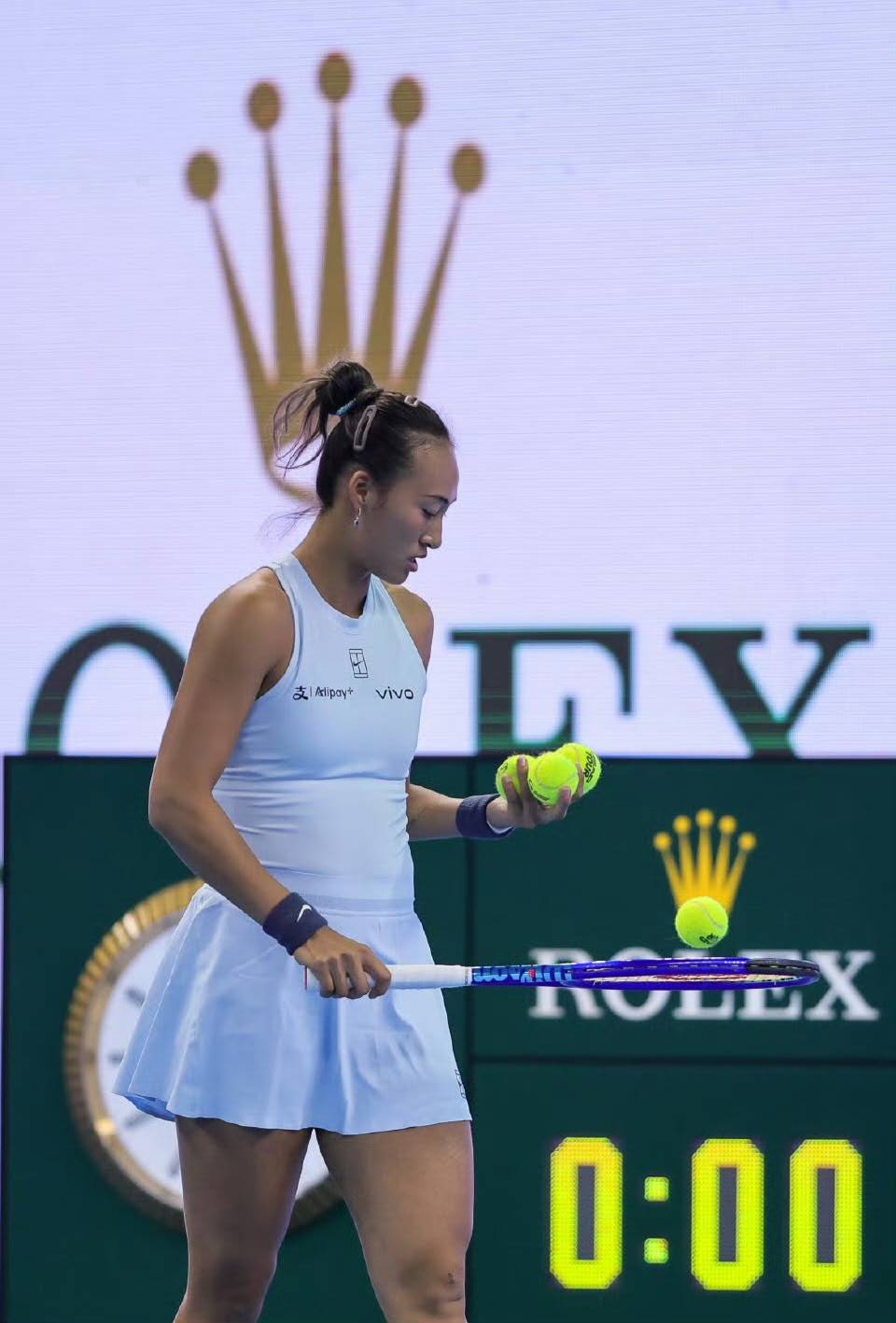
However, insiders revealed that after missing the US Open, she needed to defend the 1940 points earned in last season’s Asian swing (including reaching the China Open semifinals and Wuhan runner-up) to avoid dropping out of the top ten. Since staying in the top ten was a mandatory clause in her sponsorship contracts, under these pressures, a compromise was reached. The medical team confirmed “no major risks,” and despite slight pain, she won her first match 6-3, 6-2.
“My team didn’t fully support me playing at the China Open,” Zheng admitted surprisingly at the post-match press conference. Notably, over 45,000 visitors entered the National Tennis Center that evening, setting a new attendance record for the event. Zheng’s immense appeal is undeniable, but the decision behind her comeback is far more complex than it appears.
After her debut win, she told reporters, “The past two months have been very tough for me, watching others play while I could only wait quietly. You can see that my training and matches are fine.” Yet, she wrote “Keep going! 85%” with a smiley face on camera, which seemed to more honestly reflect her condition — improved but not fully recovered.
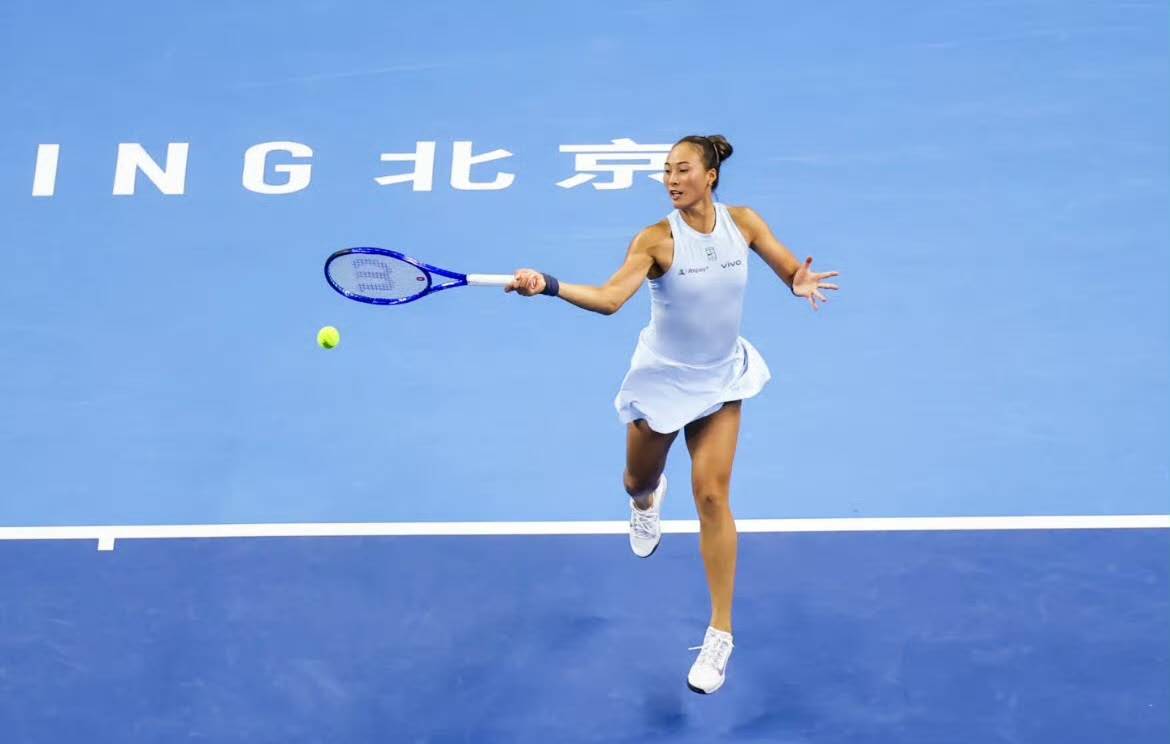
If ranking and commercial pressures are key reasons for her early comeback, the most crucial factor might be what Zheng herself admitted: “I chose to participate in the China Open entirely because of the fans’ enthusiasm.”
During her recovery, she saw fans’ messages on social media, and the passion of spectators during every training session made her eager to compete in front of them. This strong emotional connection created an invisible driving force.
Zheng emphasized multiple times that “the fans’ passion led to my comeback debut.” At the Diamond Court, attendance exceeded 90%, and over 45,000 people visited the National Tennis Center, setting a historic high. Behind these numbers lies the fans’ fervent expectations, which Zheng described as “everyone’s overwhelming enthusiasm.”
She described how she was “ignited”: “Training here every day, I constantly feel the fans’ support. Their gifts and kind words strengthened my determination to compete in front of them.”
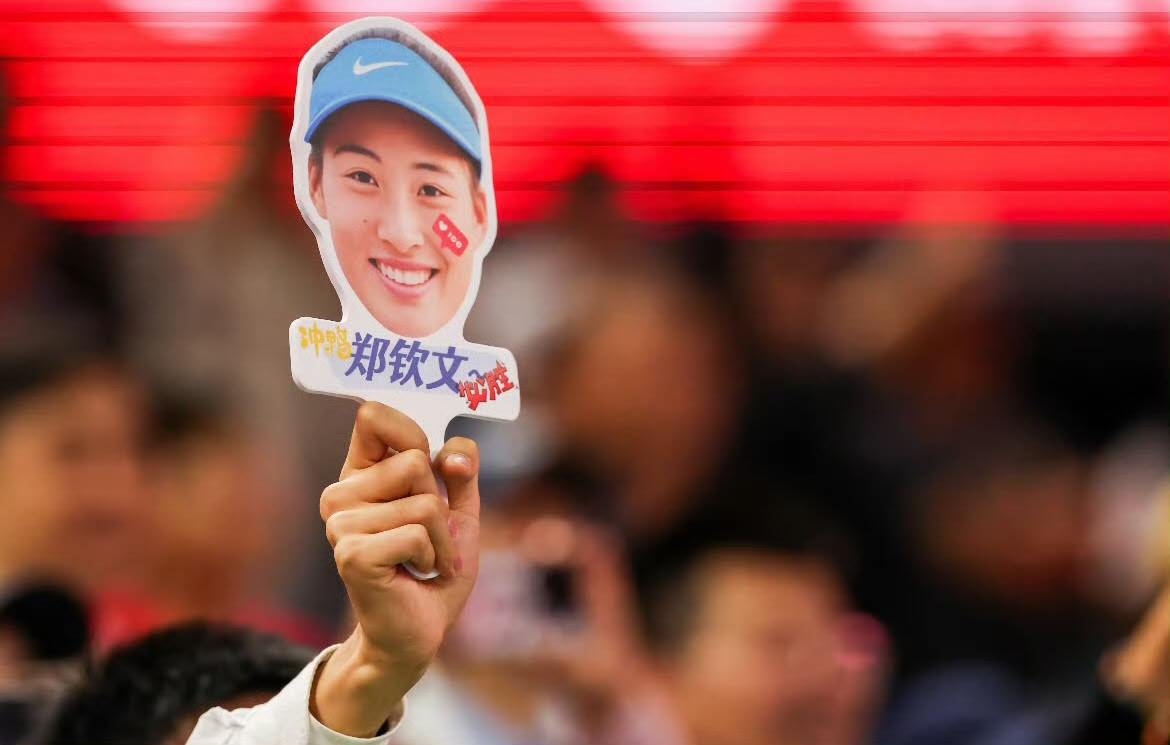
However, this fan enthusiasm is a double-edged sword. While it motivates athletes, it can also become emotional pressure, pushing them to return before they are fully ready.
Zheng Qinwen’s value has transcended sports to become a social phenomenon. Professor Yang Tieli from Capital University of Physical Education said, “Zheng’s high emotional intelligence and professionalism during interviews after winning gold have greatly enhanced her image. Especially her statement, ‘In my heart, national honor always surpasses personal glory,’ reflects her patriotism and broad vision, earning her countless fans.”
Such widespread social expectations have invisibly pressured Zheng to return early. Once she becomes a symbol of a sport, personal choices are no longer purely individual decisions.
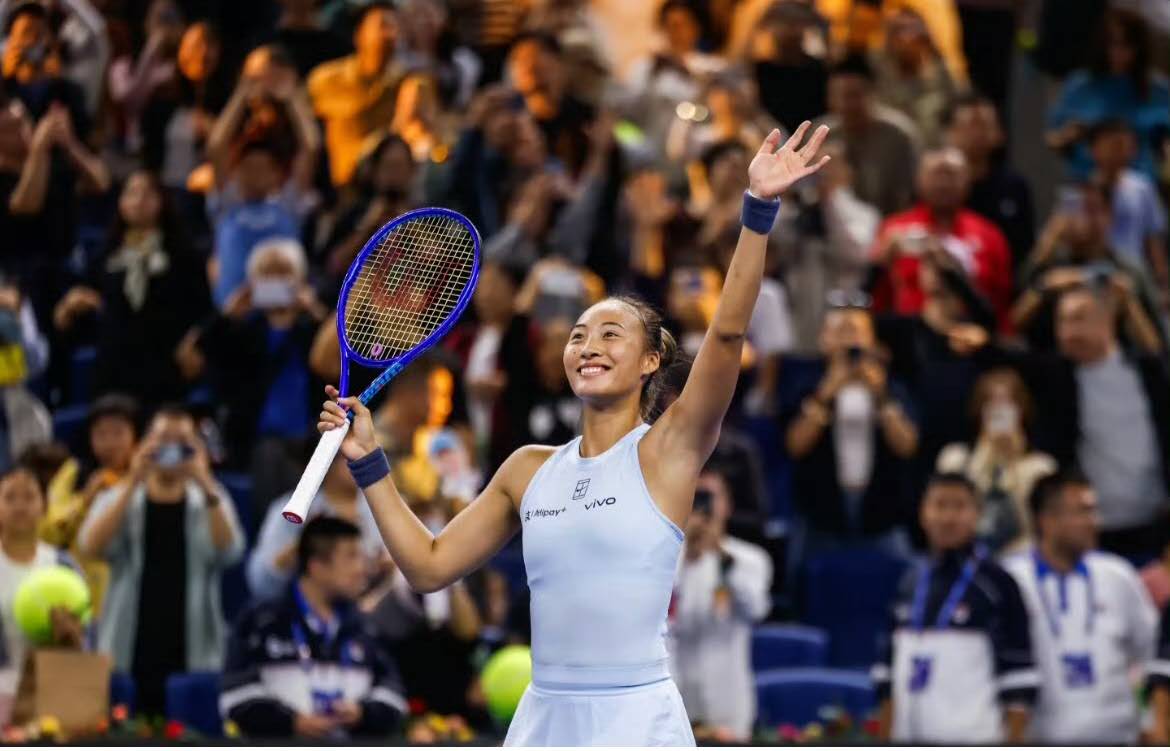
Additionally, there is a view that “financial pressure” played a significant role in Zheng’s early comeback! Professional sports are not only about competition but also a business.
According to Forbes’ 2023 list of highest-earning female athletes, Zheng Qinwen ranked 15th with total earnings of $7.2 million, most of which came from endorsements. However, behind the huge income lies heavy financial burdens. Zheng’s father invested heavily in the “Golden Grand Slam Tennis School,” and with her growing fame, team expenses have increased, placing considerable financial pressure on her.
Reports say Zheng earned $1.44 million from tournaments this season, but after paying 11% to the Chinese Tennis Association and up to 40% foreign taxes, plus team expenses—including head coach Pereyra, hitting partners, senior fitness coaches, and therapists—estimated at 7.5 million yuan, not including other costs, the reality is Zheng not only earns no net income but also has to cover nearly 1.5 million yuan out of pocket to support her team.
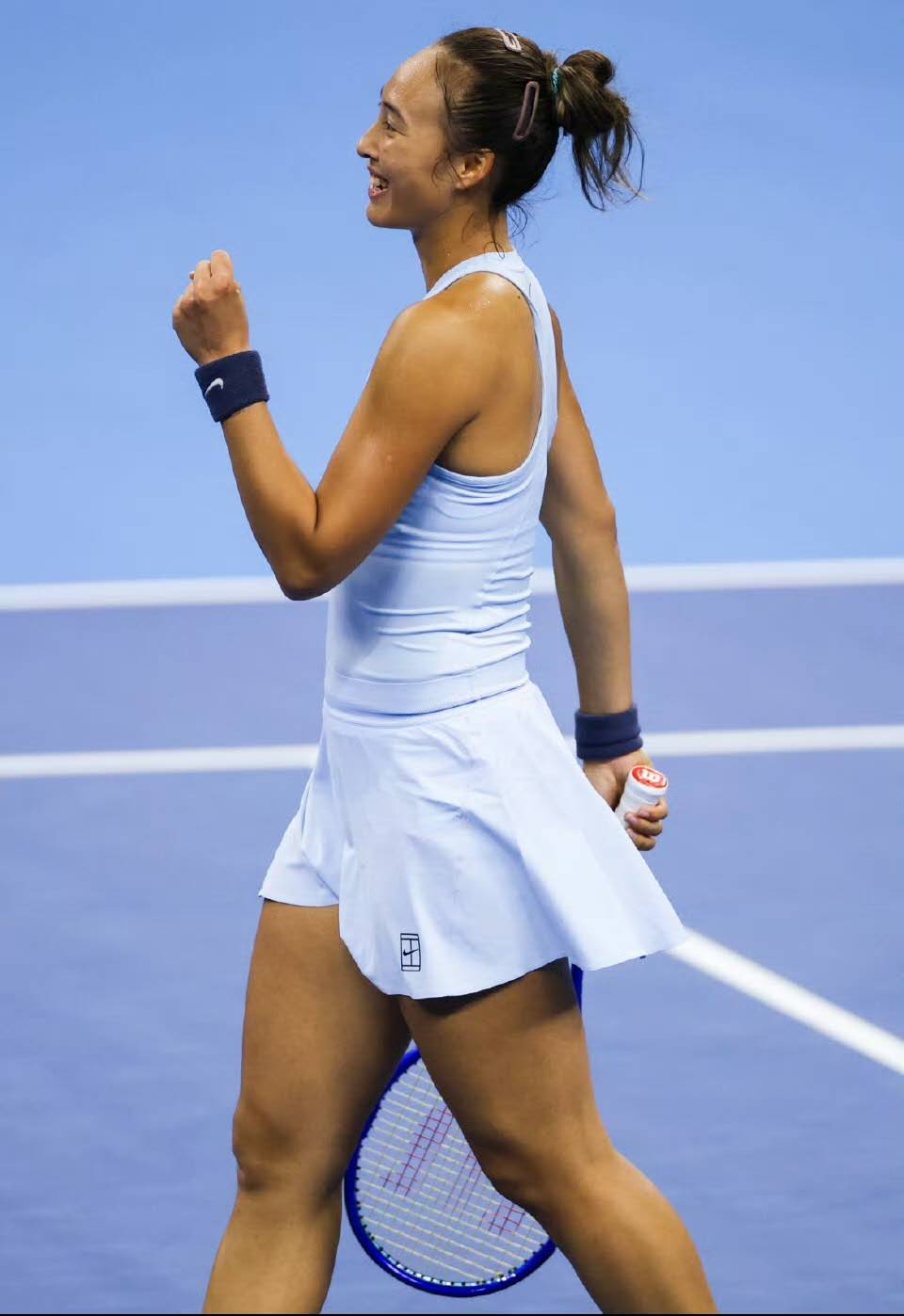
Since her surgery, Zheng has maintained a “zero income” while supporting her team, so it’s understandable that the heavy financial burden has forced her to return earlier than planned this season.
An important reason for choosing the China Open is that with the Olympic gold medal, Zheng’s commercial value has become a hot topic in the market, making her the most influential brand ambassador. The China season is the prime exposure period for Zheng and her sponsors. Missing the US Open was already a setback; further absence from the China season would severely impact her commercial value.
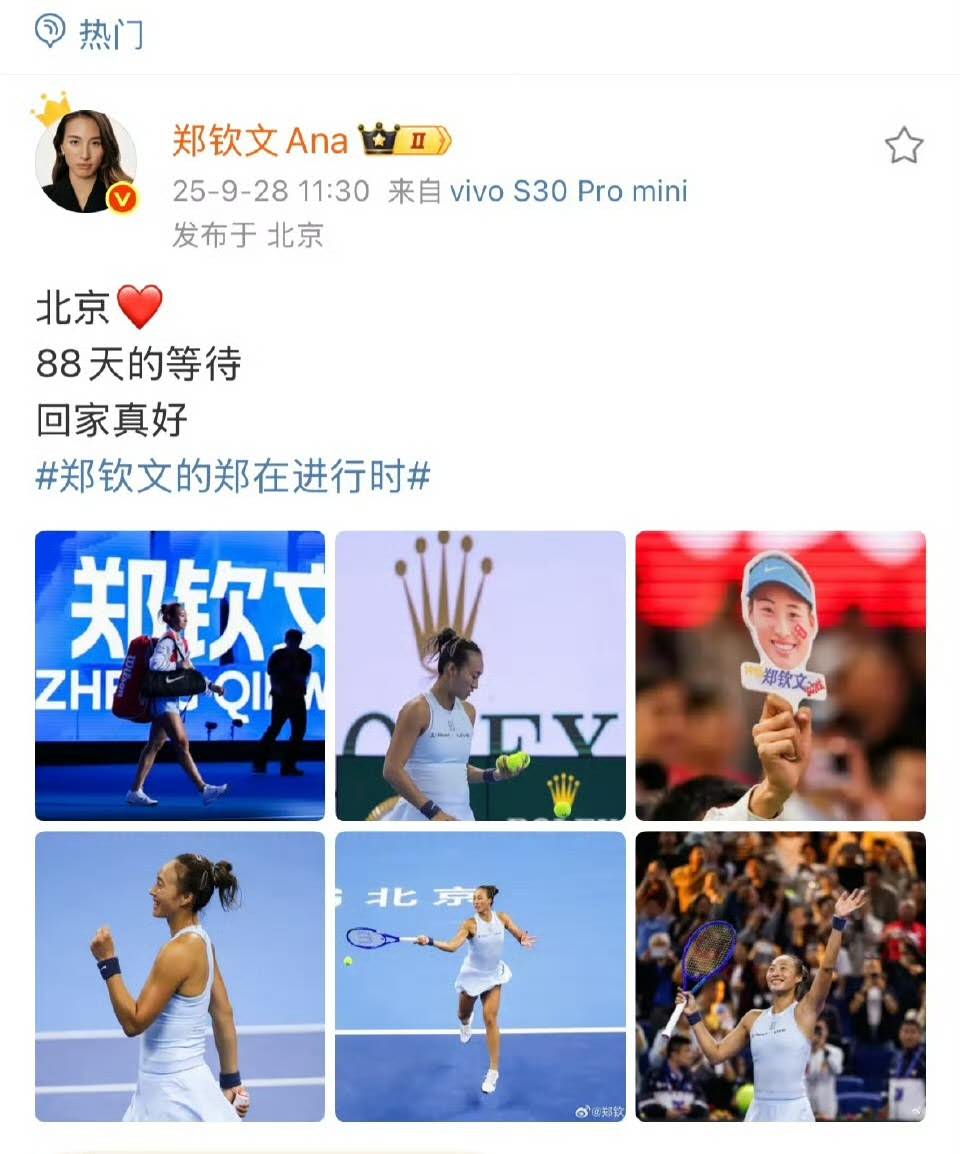
Of course, commercial pressure is not the only factor. Zheng herself knows she needs matches to maintain form and accumulate points for the year-end finals. This mix of competitive and commercial considerations makes her comeback decision more complicated.
In any case, the team has already laid out a clear step-by-step plan for her China season: after the China Open, aim for the Wuhan title, focus on consolidating points in Ningbo, and defend her title in Tokyo to test her post-surgery peak condition. Great athletes always find ways to move forward under pressure. Can Zheng Qinwen hold onto a top-ten ranking while injured? This is worth watching closely!(Source: Tennis Home, Author: Lu Xiaotian)







 Links
Links
 Contact
Contact
 App
App


